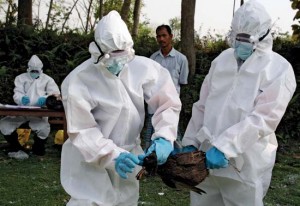
Safety Measures Against H7N9
Posted by Editor on Jul 22nd, 2013 in Favourite Lifestyle | 0 commentsThe influenza A virus H7N9 that recently surfaced in China and left 61 people hospitalized is a major cause of concern among doctors and health care providers in Singapore due to its potential harm. While medical experts say the virus’ incubation period has passed, we should not let our guards down.

Emergence
The first case of H7N9 was recorded on March 31 this year. It is avian influenza and thus circulates in avian or bird population, particularly poultry. There has been no cases recorded in Singapore, but our doctors remain on alert and have been so since the first case of a coronavirus in the country, which affected the vascular surgeon Alexander Chao.
Avian Influenza
Also known as “avian flu” or “bird flu”, an avian influenza is a type of flu that originates from a virus that was first adapted to birds. Certain avian flus, such as H7N9 and H1N1, have crossed over into affecting humans. These flus are particularly dangerous humans have had very little time to develop an immunity to them.
Preparations
Medical experts in Singapore coordinate with a global network of scientists and researchers who are constantly monitoring all cases of influenza and looking for treatments to them. But apart from avian influenza, doctors also warn people against more common, but similarly dangerous viruses like the dengue fever, of which there has already been close to 500 cases in the country this year.
Good News
Given that there have been new recent cases of H7N9 for the past 30 days, experts say that the virus has already receded while retaining preventive and control measures. Dr Jiang Qungwu of Fudan University, an expert in infectious diseases, says that the best measure against any types of flu is simply maintaining good personal hygiene.
